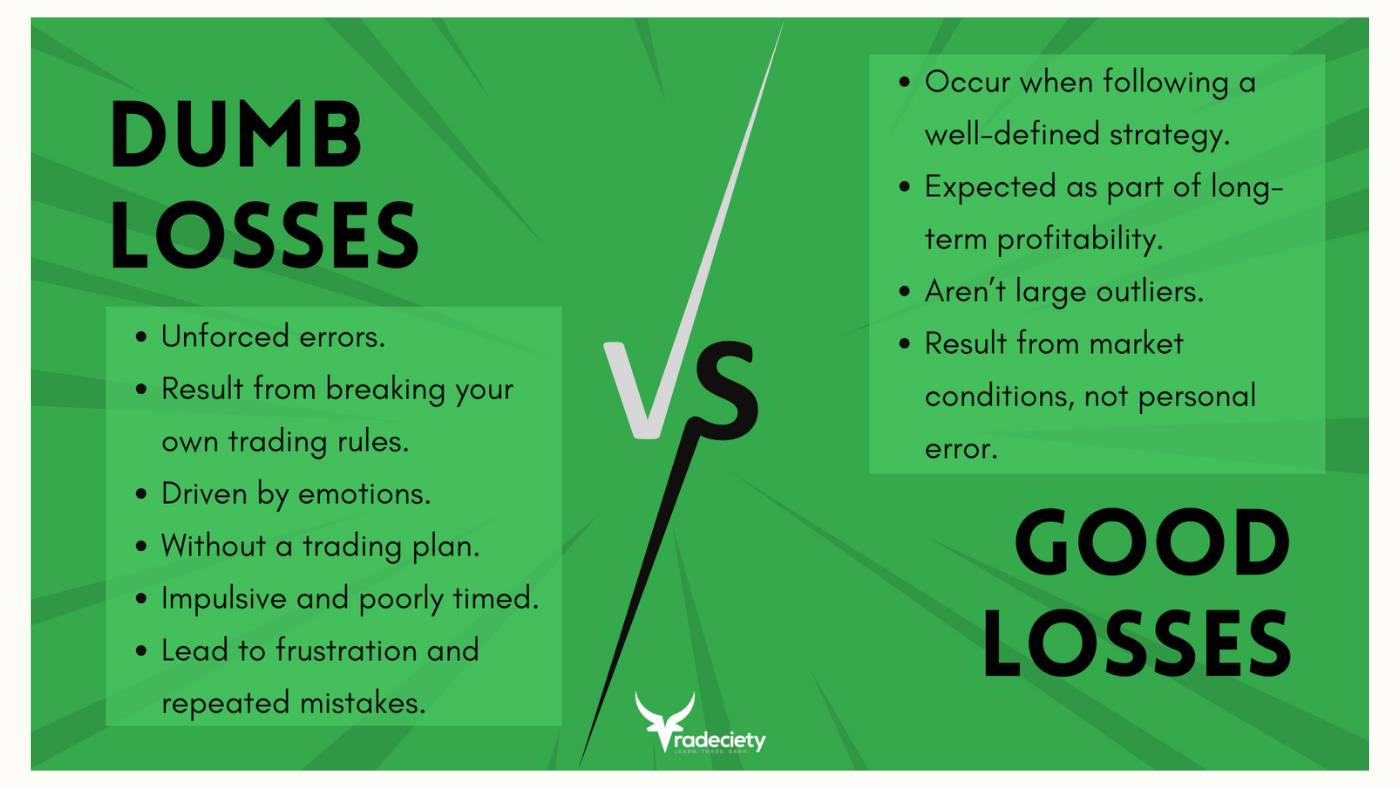Did you know that even the best day traders can mistake a bull market for a stampede? In the fast-paced world of futures trading, avoiding common pitfalls is crucial for success. This article delves into the most frequent mistakes made by day traders, from poor risk management to emotional decision-making. It highlights the importance of a solid trading plan and thorough market research, and how discipline can make or break trading outcomes. We'll also explore the psychological traps that can lead to costly errors, the dangers of over-leveraging, and the impact of unrealistic expectations. With insights from DayTradingBusiness, you'll learn how to steer clear of these traps and enhance your trading performance.
What are the most common mistakes in day trading futures?
The most common mistakes in day trading futures include:
1. Lack of a Trading Plan: Entering trades without a clear strategy can lead to impulsive decisions.
2. Overleveraging: Using too much margin can amplify losses and wipe out accounts quickly.
3. Ignoring Risk Management: Not setting stop-loss orders exposes traders to significant losses.
4. Emotional Trading: Allowing fear or greed to dictate trades often results in poor choices.
5. Chasing Losses: Trying to recover losses with reckless trades usually deepens the problem.
6. Poor Timing: Entering or exiting trades too late can diminish potential profits.
7. Neglecting Market Research: Failing to stay informed about market news and trends leads to uninformed trades.
How can beginners avoid pitfalls in futures trading?
Beginners can avoid pitfalls in futures trading by following these key practices:
1. Educate Yourself: Understand the basics of futures contracts, margin requirements, and market dynamics before trading.
2. Develop a Trading Plan: Create a clear strategy outlining entry and exit points, risk management, and position sizing.
3. Manage Risk: Use stop-loss orders to limit potential losses and never risk more than you can afford to lose.
4. Stay Disciplined: Stick to your trading plan and avoid emotional decision-making, especially during volatile markets.
5. Practice with a Demo Account: Use a simulated trading platform to gain experience without financial risk.
6. Keep Up with Market News: Stay informed about economic indicators and events that can affect futures prices.
7. Avoid Overleveraging: Use leverage wisely; excessive leverage can lead to significant losses.
By focusing on education, planning, risk management, and discipline, beginners can navigate the complexities of futures trading more effectively.
What psychological traps do day traders often fall into?
Day traders often fall into several psychological traps:
1. Overconfidence: They may believe their skills are better than they are, leading to reckless trading decisions.
2. Loss Aversion: Traders might hold onto losing positions too long, hoping to break even instead of cutting losses.
3. FOMO (Fear of Missing Out): This can drive traders to enter trades impulsively, often resulting in poor decisions.
4. Recency Bias: They might give too much weight to recent trades, affecting their judgment on future trades.
5. Confirmation Bias: Traders often seek information that supports their existing beliefs, ignoring contrary evidence.
6. Chasing Losses: Trying to recover losses quickly can lead to bigger mistakes and even larger losses.
7. Emotional Trading: Acting on emotions rather than a solid strategy can derail a trading plan.
Awareness of these traps can help day traders make more rational decisions.
How does poor risk management impact futures trading success?
Poor risk management in futures trading can lead to significant financial losses. Traders may over-leverage their positions, risking more capital than they can afford to lose. This can result in margin calls or forced liquidations during market volatility. Additionally, inadequate stop-loss orders can exacerbate losses, leaving traders vulnerable to sudden price swings. Emotional decision-making, stemming from fear or greed, often leads to irrational trades, compounding the risk. Ultimately, without a solid risk management strategy, the chances of consistent success in futures trading diminish greatly.
Why is a solid trading plan essential for day traders?
A solid trading plan is essential for day traders because it provides clear guidelines for entering and exiting trades, managing risk, and setting profit targets. It helps avoid emotional decision-making, which can lead to common mistakes like overtrading or holding onto losing positions. A well-defined plan increases consistency and discipline, allowing traders to stick to their strategy even in volatile markets. Without it, day traders are more likely to make impulsive trades that can result in significant losses.
What role does market research play in avoiding trading mistakes?
Market research helps traders identify trends, understand market conditions, and make informed decisions, which reduces the likelihood of costly mistakes in day trading futures. By analyzing data and assessing risks, traders can avoid impulsive actions based on emotions. Thorough research also aids in developing a solid trading strategy, enabling better entry and exit points. Ultimately, informed decisions lead to more consistent profits and fewer trading errors.
How can emotional trading lead to losses in futures?

Emotional trading can lead to losses in futures by causing impulsive decisions. When traders act on fear or greed, they often enter or exit positions at the wrong times. For example, panic selling during a downturn can lock in losses, while chasing a rally due to excitement can lead to buying at inflated prices. Additionally, overconfidence might result in taking excessive risks, amplifying potential losses. Staying disciplined and sticking to a trading plan can help mitigate these emotional pitfalls.
What are the consequences of over-leveraging in futures trading?
Over-leveraging in futures trading can lead to significant losses, as it amplifies both gains and risks. Traders may face margin calls if their positions move against them, forcing them to deposit more funds or liquidate positions at a loss. It can also result in a total account wipeout, as small market fluctuations can trigger substantial financial damage. Additionally, emotional stress increases, leading to poor decision-making. Overall, over-leveraging can quickly turn profitable trades into devastating losses.
How can lack of discipline affect day trading outcomes?
Lack of discipline in day trading can lead to emotional decision-making, causing traders to deviate from their strategies. This often results in impulsive trades, overtrading, and increased losses. Without discipline, traders may ignore risk management rules, risking too much on a single trade. Consistency suffers when traders chase losses or fail to stick to their trading plans, ultimately harming their profit potential.
What mistakes do experienced traders make in futures markets?
Experienced traders in futures markets often make several key mistakes:
1. Overleveraging: Many traders take on too much leverage, leading to significant losses during market fluctuations.
2. Ignoring Risk Management: Failing to set stop-loss orders can result in devastating losses when trades go against them.
3. Overtrading: Trading too frequently can increase transaction costs and lead to emotional decision-making.
4. Lack of a Clear Strategy: Some traders deviate from their trading plan, chasing losses or getting distracted by market noise.
5. Emotional Trading: Allowing fear or greed to dictate decisions can undermine disciplined trading practices.
6. Neglecting Market Analysis: Skipping thorough analysis can result in missed opportunities or poor entry and exit points.
7. Inadequate Preparation: Not staying updated on news and events affecting the market can lead to uninformed trading decisions.
Addressing these mistakes can greatly improve a trader's performance in the futures markets.
How can traders misinterpret market signals?

Traders can misinterpret market signals by relying too heavily on one indicator, such as a single moving average, without considering the broader context. They might see a price spike and assume it's a trend reversal, ignoring volume trends that suggest otherwise. Emotional trading can lead to knee-jerk reactions to news, resulting in poor decisions. Additionally, overtrading based on short-term fluctuations can blur the real market signals. Failing to recognize patterns, like consolidations or breakouts, can also skew a trader's perception of market direction.
## What Are the Common Mistakes to Avoid When Trading Futures in Day Trading?
Futures in day trading are contracts to buy or sell an asset at a predetermined price on a specific future date. Common mistakes in day trading futures include over-leveraging, failing to set stop-loss orders, not having a clear trading plan, and ignoring market trends.
Learn more about: What Are Futures in Day Trading?
Learn about Common Mistakes in Day Trading Scalping and How to Avoid Them
Why is it important to manage trading costs and fees?
Managing trading costs and fees is crucial because they directly impact your overall profitability. High costs can eat into your gains, making it harder to achieve positive returns. Frequent trading increases fees, which can significantly reduce your margins. Additionally, understanding these costs helps you make informed decisions about your trading strategy, ensuring you maximize your profits while minimizing losses. Keeping trading expenses low enables you to stay competitive in the market and increases your chances of long-term success.
What are the risks of chasing losses in day trading?
Chasing losses in day trading can lead to significant financial harm. It often results in emotional decision-making, which can amplify losses. Traders may over-leverage positions to recover losses quickly, increasing the risk of margin calls. This behavior can also lead to a vicious cycle of chasing losses, where one loss prompts further risky trades in an attempt to recoup. Additionally, it can erode discipline, resulting in deviating from established trading plans. Overall, chasing losses can jeopardize both capital and trading strategy, making it a common mistake in futures trading.
How can failure to adapt to market changes harm traders?
Failure to adapt to market changes can lead traders to miss critical trends, resulting in poor decision-making and losses. Ignoring shifts like economic indicators or market sentiment can trap traders in losing positions. Sticking to outdated strategies without considering current data can amplify risks. Ultimately, this rigidity can deplete capital and erode confidence, making it harder to recover from losses. Adaptability is crucial for success in day trading futures.
What are the consequences of neglecting trading journals?

Neglecting trading journals can lead to poor decision-making and repeated mistakes. Without tracking trades, you miss insights into what strategies work or fail. This lack of self-reflection can cause emotional trading, increasing losses. You also forfeit the opportunity to identify patterns and refine your approach, hindering growth as a trader. Ultimately, it can result in diminished profitability and increased risk over time.
How can unrealistic expectations lead to trading failures?
Unrealistic expectations can lead to trading failures by fostering overconfidence, resulting in poor decision-making. Traders might expect quick profits and take excessive risks, ignoring market realities. This mindset can cause them to hold losing positions too long, hoping for a reversal that never comes. Additionally, unrealistic goals can lead to frustration, prompting impulsive trades that deviate from their strategy. Ultimately, this cycle of disappointment can erode discipline and lead to significant financial losses in day trading futures.
Conclusion about Common Mistakes in Day Trading Futures
In conclusion, avoiding common mistakes in day trading futures is crucial for long-term success. By developing a solid trading plan, managing risk effectively, and maintaining discipline, traders can navigate the complexities of the market more successfully. Awareness of psychological traps and the importance of market research also plays a vital role in minimizing errors. For those seeking to enhance their trading skills and knowledge, DayTradingBusiness offers valuable insights and resources to help traders thrive in the futures market.
Learn about Common Mistakes in Day Trading Momentum Strategies